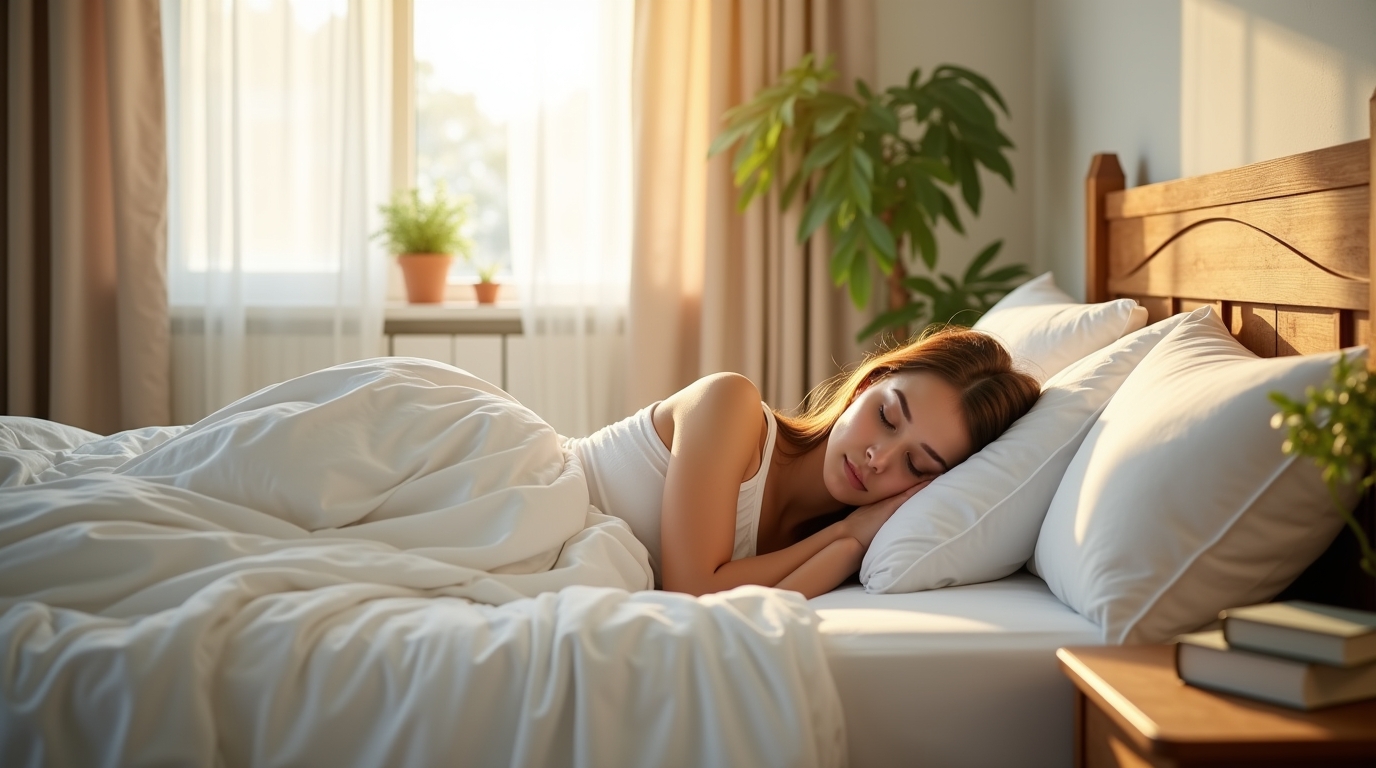A restful night’s sleep is essential for overall well-being. From your immune system to your emotional balance, quality sleep affects almost every function of your body. However, millions of people across the US, UK, and Canada struggle with sleep issues due to stress, screen time, diet, or inconsistent routines. While sleeping pills might offer a quick fix, they often come with side effects and dependency risks.
Fortunately, there are natural, science-backed ways to improve your sleep without relying on medication. In this article, we’ll explore effective strategies to help you fall asleep faster, sleep deeper, and wake up feeling refreshed.
Why Sleep Quality Matters
Poor sleep is more than just feeling tired—it has real consequences on your physical and mental health. Chronic sleep deprivation is associated with:
-
Weight gain and obesity
-
Weak immune function
-
Increased risk of heart disease and diabetes
-
Poor concentration and memory
-
Mood disorders like anxiety and depression
Getting 7–9 hours of high-quality sleep per night is essential for adults. It’s not just about how long you sleep, but how deeply you sleep that truly matters.
Natural Ways to Improve Sleep Quality
1. Establish a Consistent Sleep Schedule
Your body thrives on routine. Going to bed and waking up at the same time every day—yes, even on weekends—regulates your internal clock, making it easier to fall asleep and wake up naturally.
2. Create a Sleep-Friendly Environment
-
Keep it dark: Use blackout curtains to block external light.
-
Keep it quiet: Consider white noise machines or earplugs.
-
Keep it cool: 60–67°F (15–19°C) is ideal for most people.
-
Comfortable bedding: Invest in a good mattress and soft sheets.
A calm, clutter-free bedroom tells your brain it’s time to rest.
3. Limit Screen Time Before Bed
Phones, TVs, and computers emit blue light, which suppresses melatonin, the hormone responsible for making you sleepy. Try turning off screens at least one hour before bed. If that’s difficult, use blue light blocking glasses or switch to night mode.
4. Watch What You Eat and Drink
Avoid large meals, caffeine, and alcohol close to bedtime. These can disrupt your sleep cycle and cause frequent awakenings.
-
Caffeine: Found in coffee, tea, chocolate, and energy drinks. Stop intake after 2 PM.
-
Alcohol: May help you fall asleep, but reduces REM sleep and increases wakefulness later.
Instead, opt for a light snack like bananas, almonds, or a warm glass of milk.
5. Exercise Regularly
Daily physical activity helps you fall asleep faster and improves sleep quality. Just avoid intense exercise within two hours of bedtime, as it may be too stimulating.
Even a 20–30 minute walk in the morning or afternoon can make a noticeable difference in your sleep patterns.
6. Practice Relaxation Techniques
Stress and anxiety are major contributors to insomnia. Calming your mind before bed can help you drift off more easily.
Some effective relaxation techniques include:
-
Deep breathing exercises
-
Progressive muscle relaxation
-
Mindfulness meditation
-
Reading a physical book (not on a screen)
-
Journaling your thoughts to release mental clutter
Apps like Calm, Headspace, and Insight Timer offer guided meditations and bedtime stories tailored for better sleep.
7. Use Natural Sleep Aids
You don’t need pills to fall asleep—nature has provided many helpful remedies:
-
Chamomile tea: A soothing herbal tea known for calming effects.
-
Magnesium: A mineral that helps regulate neurotransmitters involved in sleep.
-
Lavender essential oil: Proven to reduce anxiety and improve sleep quality when diffused in the room or applied topically.
-
Melatonin supplements: Useful for short-term use or jet lag, but consult a doctor before long-term use.
Signs You May Have a Sleep Disorder
If you try all these tips and still struggle to sleep, you might be suffering from a sleep disorder like:
-
Insomnia: Difficulty falling or staying asleep
-
Sleep apnea: Interrupted breathing during sleep
-
Restless Leg Syndrome (RLS): An uncontrollable urge to move your legs at night
In such cases, it’s important to consult a sleep specialist for proper diagnosis and treatment.
Bonus Tip: Track Your Sleep
Modern technology can help you understand your sleep patterns. Use sleep-tracking devices or apps to monitor your rest and adjust your habits accordingly. Some top-rated apps include:
-
Sleep Cycle
-
Pillow
-
Fitbit Sleep Tracker
These tools provide insights on how long and how well you’re sleeping, and suggest ways to improve it.
Final Thoughts
Sleep is not a luxury—it’s a necessity. You don’t need to rely on pills or expensive treatments to get better rest. By making a few natural changes in your routine and environment, you can dramatically improve your sleep quality and overall health. Whether it’s sipping on herbal tea, creating a relaxing bedtime routine, or managing screen time, these simple habits can transform your nights—and your days.
